|
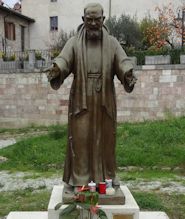 Dwight Peck's personal website Dwight Peck's personal website
Umbria and the neighborhood, November 2015
Twelve days in Gubbio and day trips roundabout
You may not find this terribly rewarding unless you're included here, so this is a good time for casual and random browsers to turn back before they get too caught up in the sweep and majesty of the proceedings and can't let go.
A last day in Gubbio, then on to Lu and Altavilla
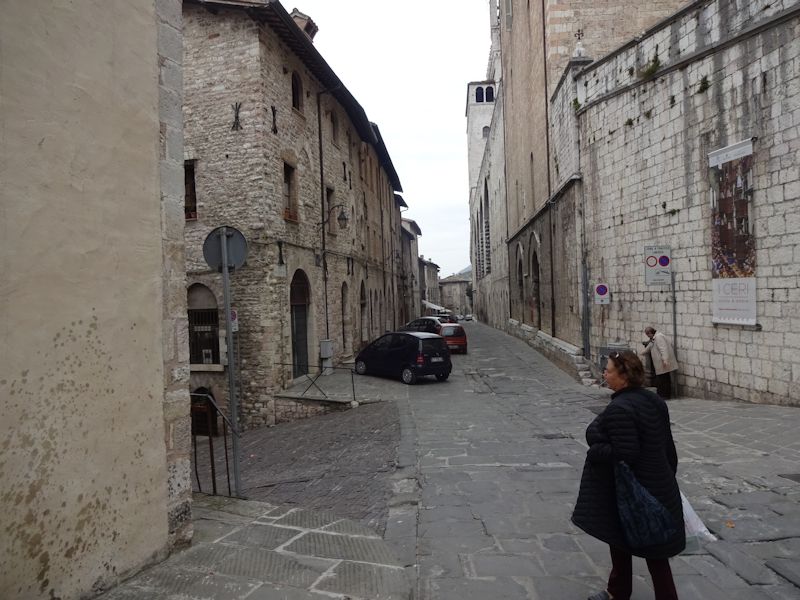
Our last day in Gubbio, 20 November 2015, at the top of the Via della Repubblica
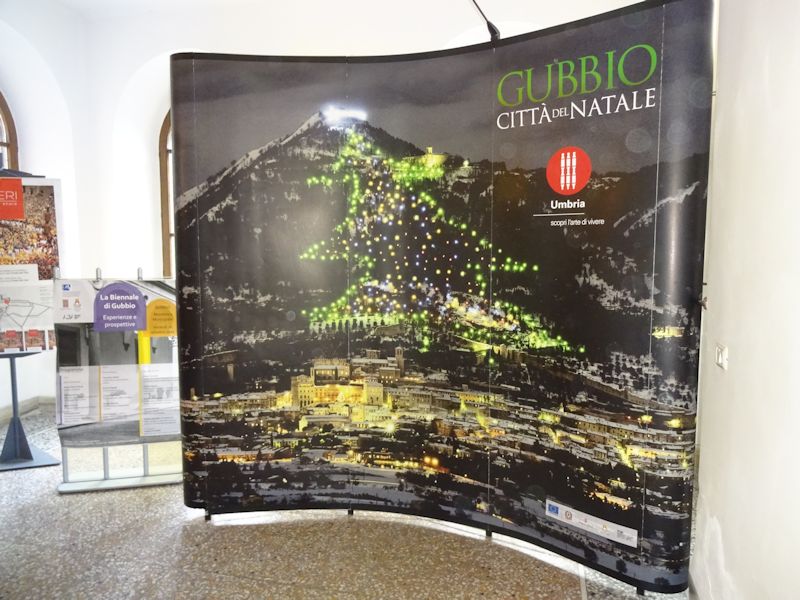
Gubbio's traditional Christmas light-me-up
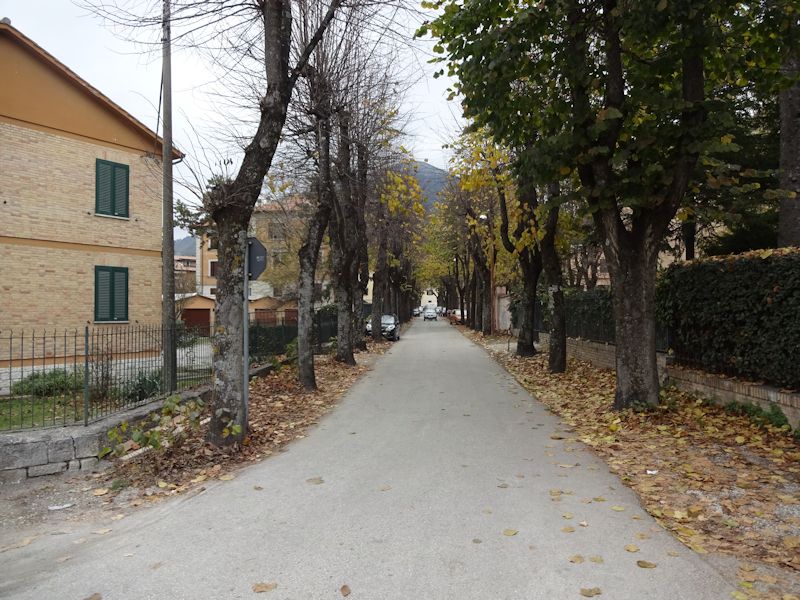
Gubbio's southern suburbs: This is the Via Mausoleo, which a little farther on, near the car coming this way, becomes the Via Salvatore Allende
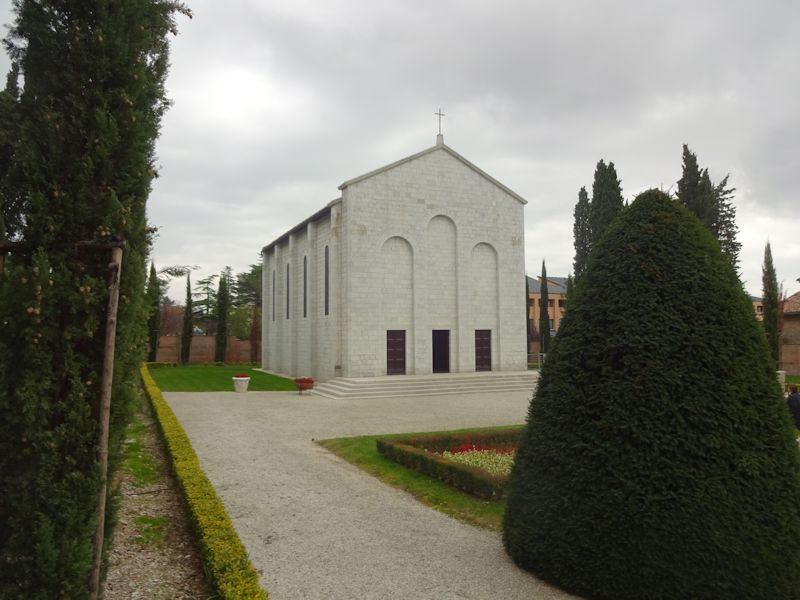
This is the Mausoleo dei Quaranta Martiri. On 20 June 1944, members of the "patriotic action guard" shot and killed a German medical officer, and the next day 40 citizens, men and women, young and old, all apparently completely unrelated to the deed or the perpetrators, were arrested, and overnight some of them were forced to dig a mass grave.
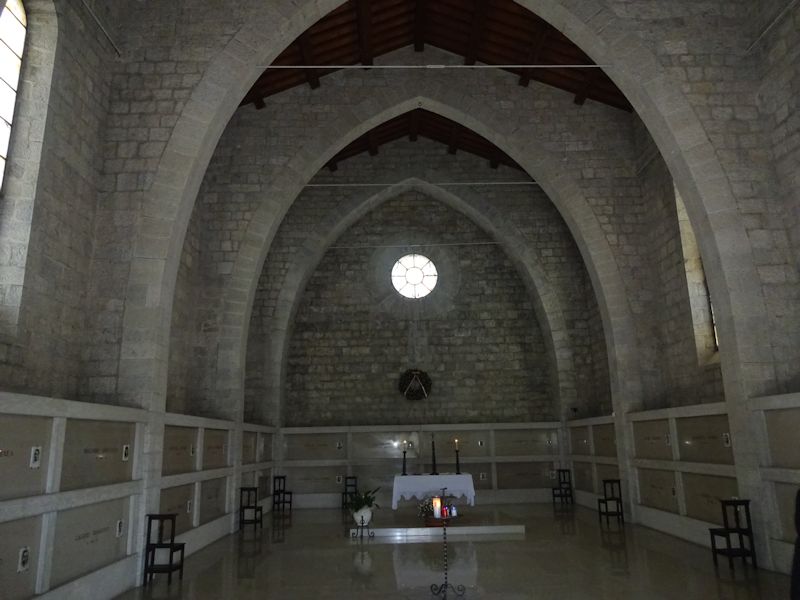
In the early hours of 22 June 1944, the forty civilian hostages were all shot by the German army, against a wall here on this site. The mausoleum was built in 1949 as a commemoration and a lesson to everybody.
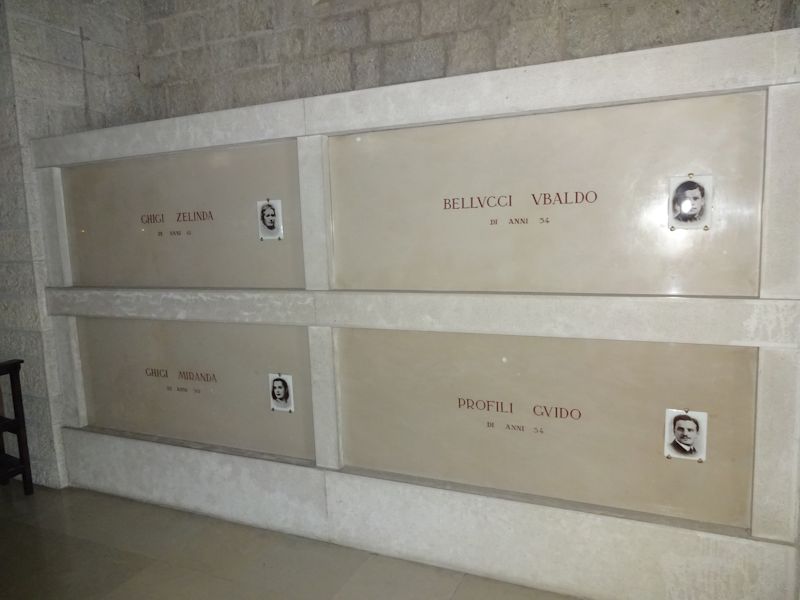
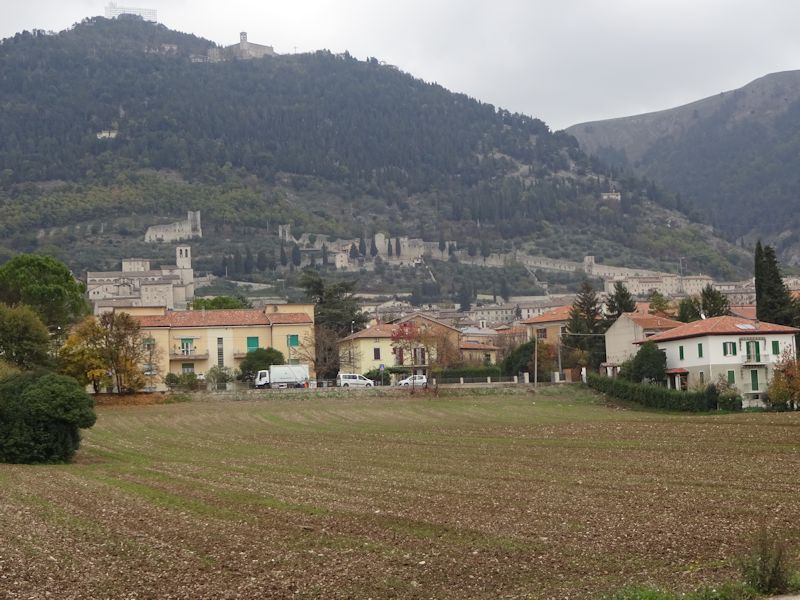
Gubbio, the remains of its city wall, and the Basilica of St Ubaldo on Monte Ingino, from the southern suburbs
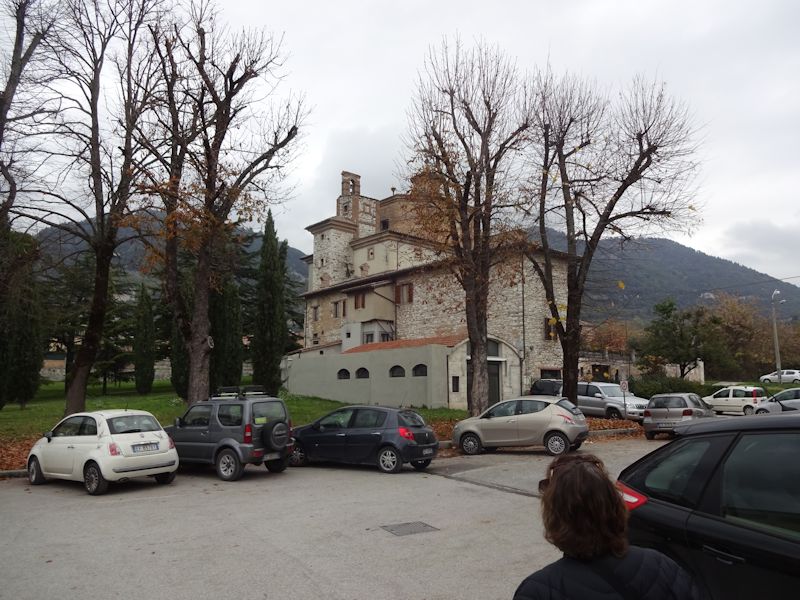
The 17th century Chiesa della Madonna del Prato ('of the fields')
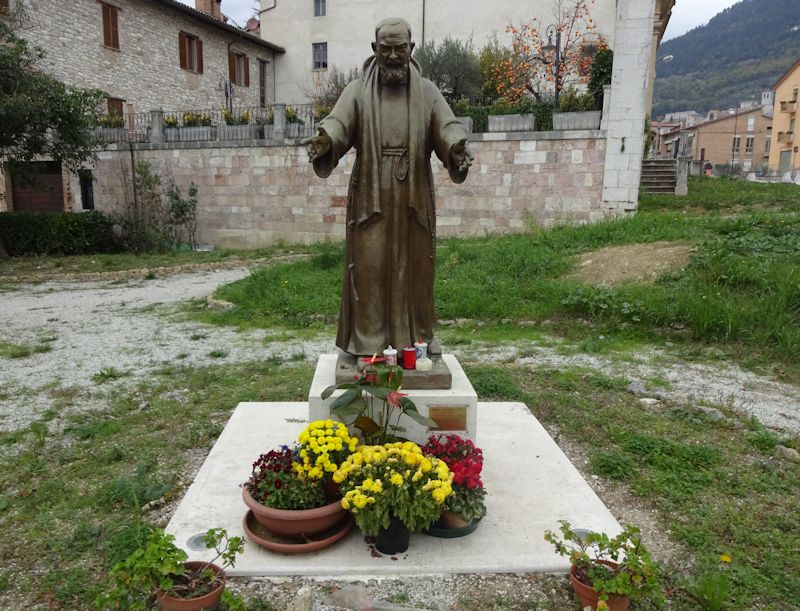
A statue of Saint Padre Pio (1887-1968), the beloved stigmatist, with fresh-ish flowers all around. Gubbio seems to be the city of really angry saints (or they're both by the same angry sculptor).
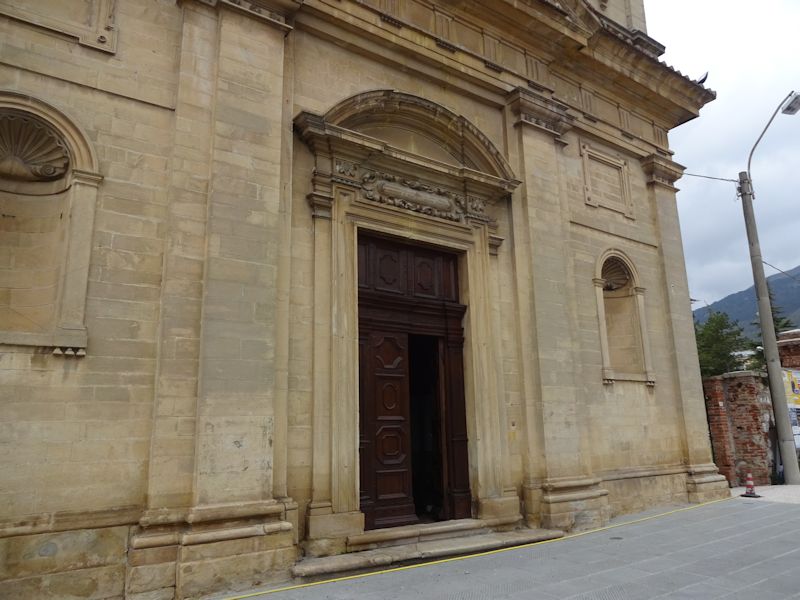
The church of Madonna del Prato; nothing special, but we're passing by anyway.
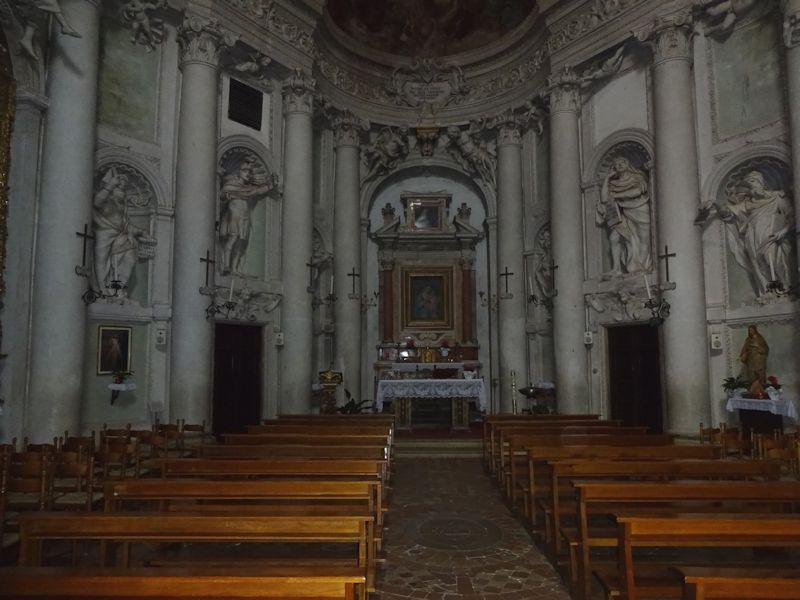
Okay
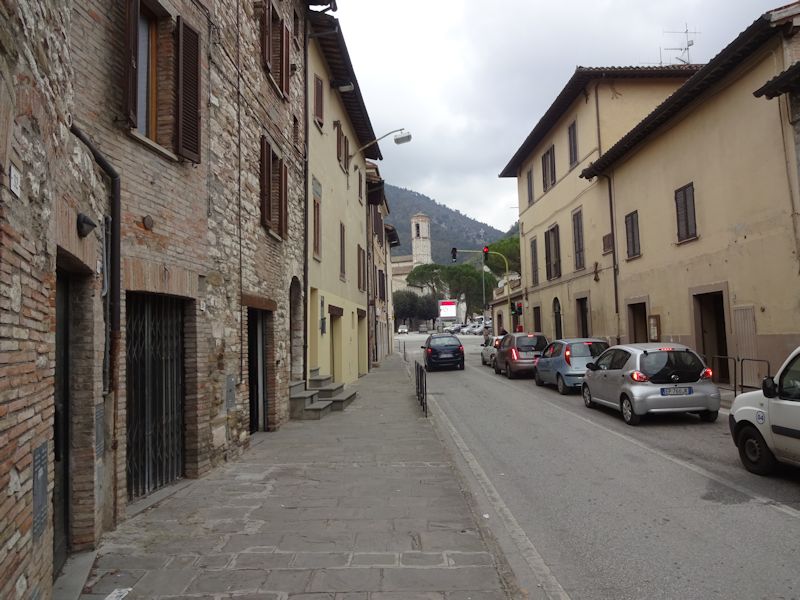
We've just been canvassing cat food stores, and our arms are filled with bags of little tins that we hope will be found acceptable. This is the Via Perugina coming north back into the old town.
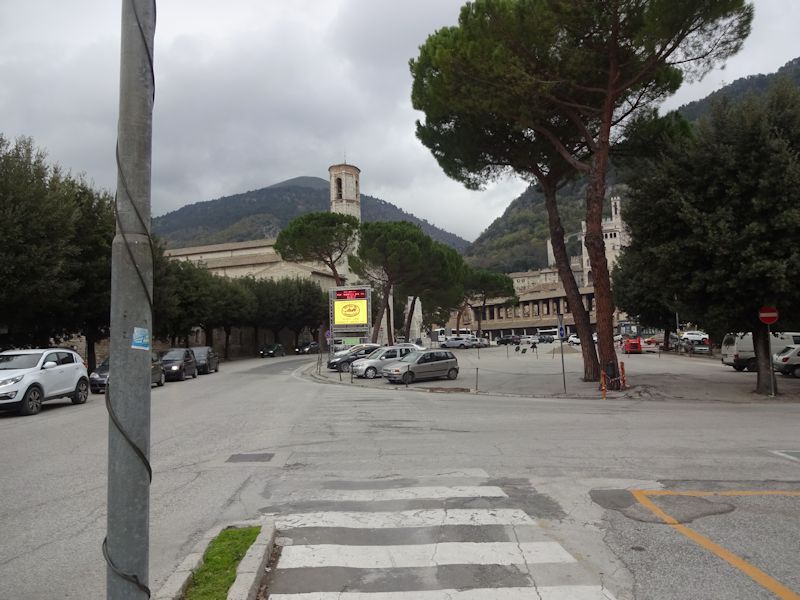
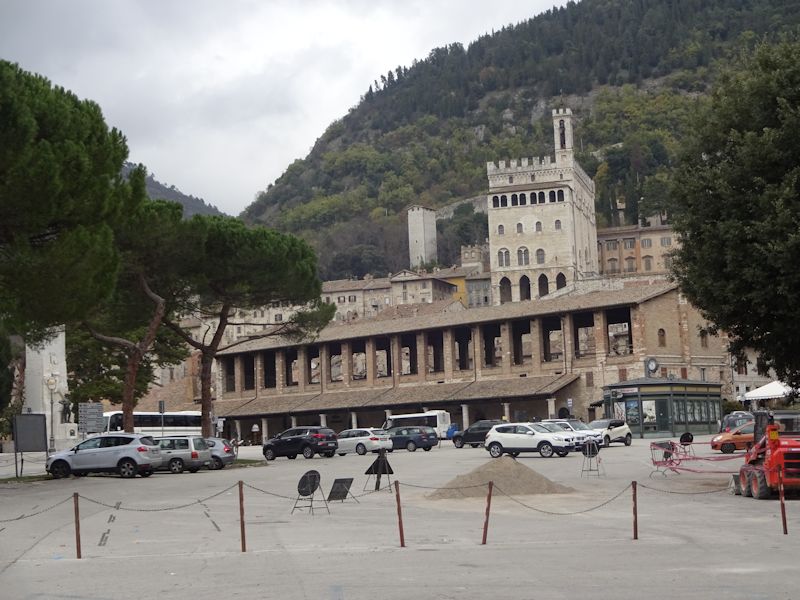
The Piazza of the 40 Martyrs and a look up the hill at the Palazzo dei Consoli
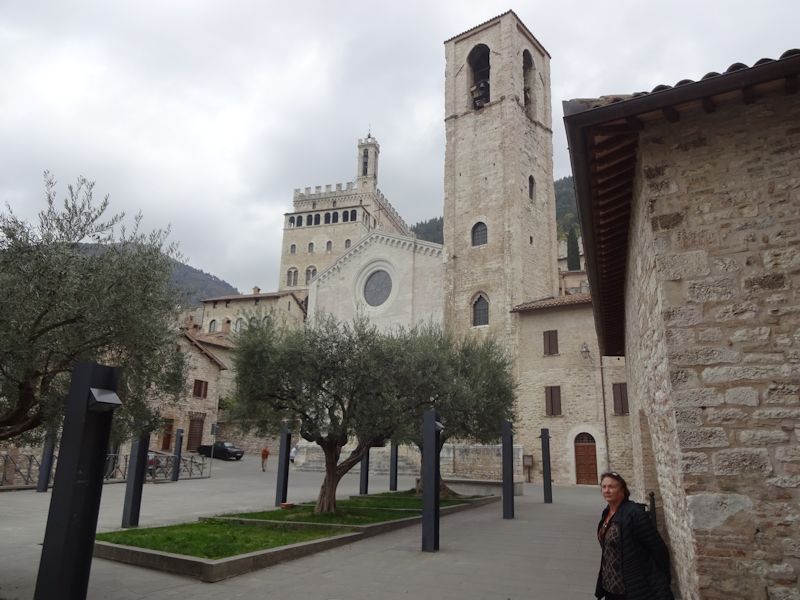
The church of San Giovanni again, with the Palazzo dei Consoli
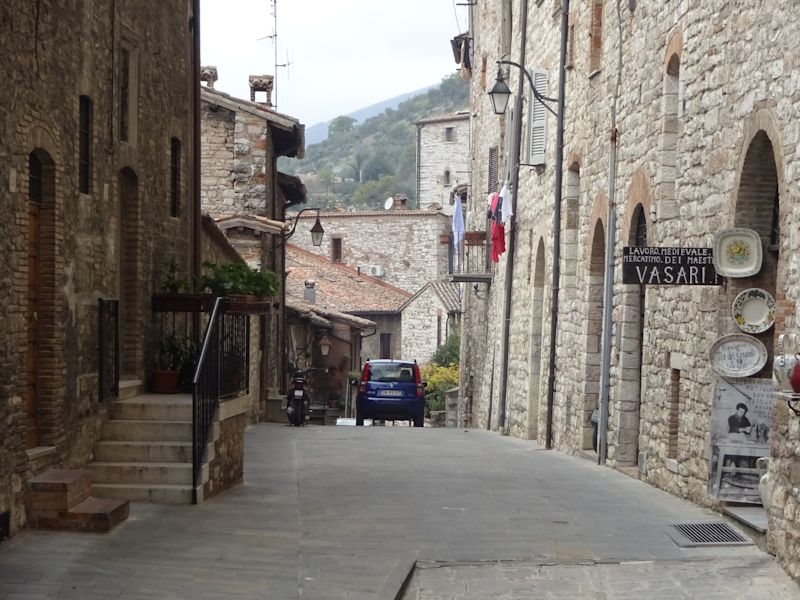
The Via Zecca on the way up to the Via dei Consoli
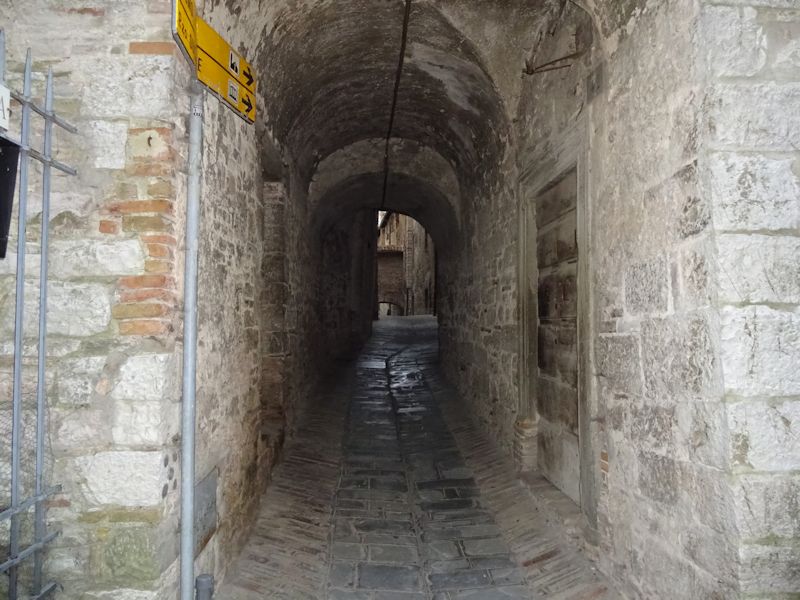
This is the Via Galeotti just behind the Via dei Consoli, underneath the Ducal Palace and most of our hotel
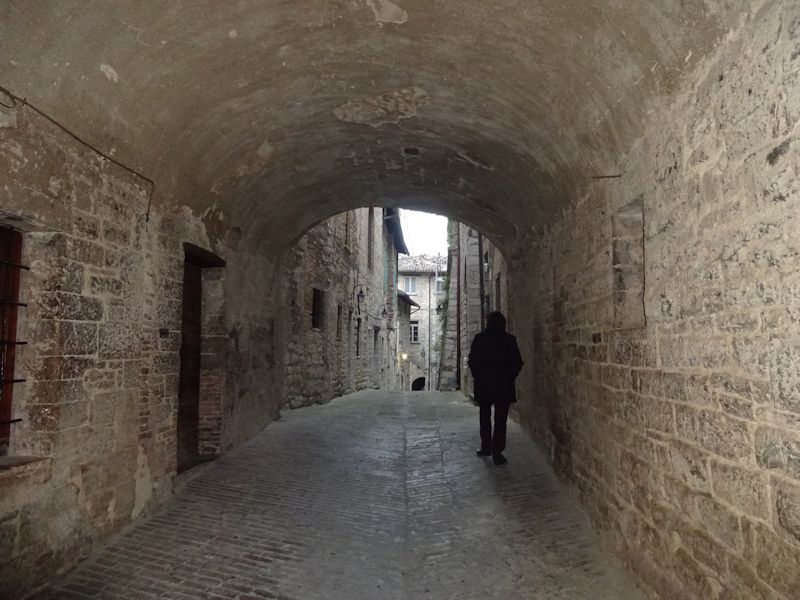
The Via Galeotti
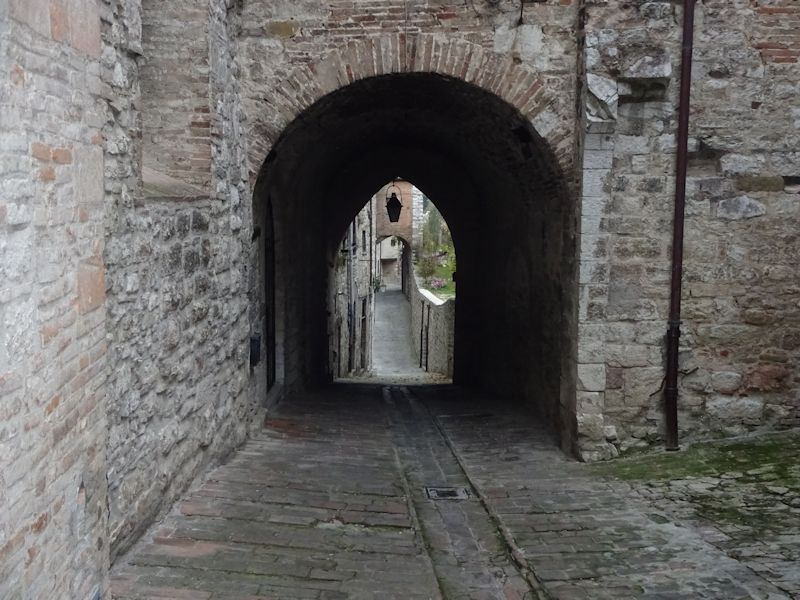
The same
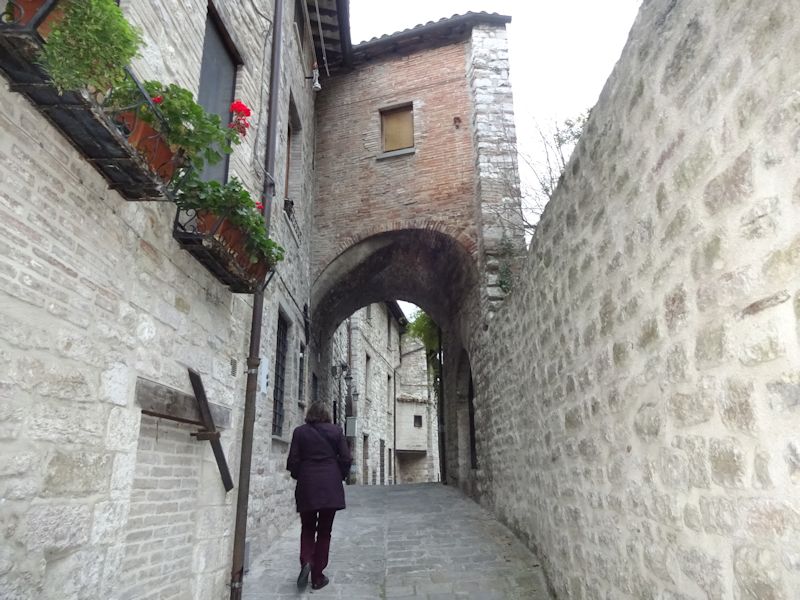
And same again
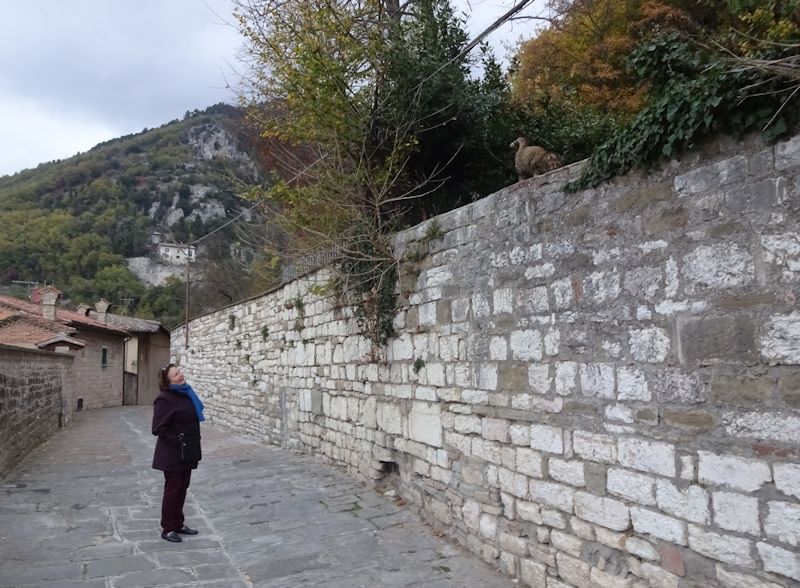
Cute kitty patrol on the Via della Cattedrale
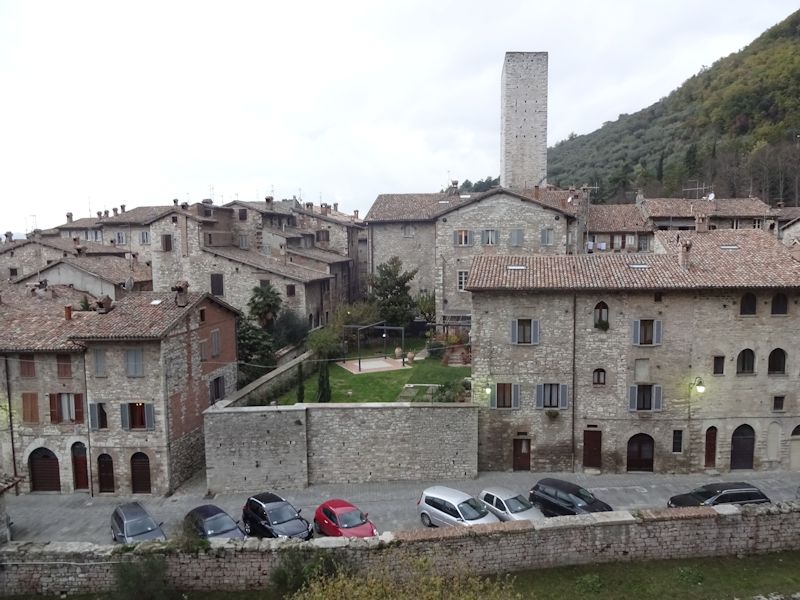
High above the River Camignano
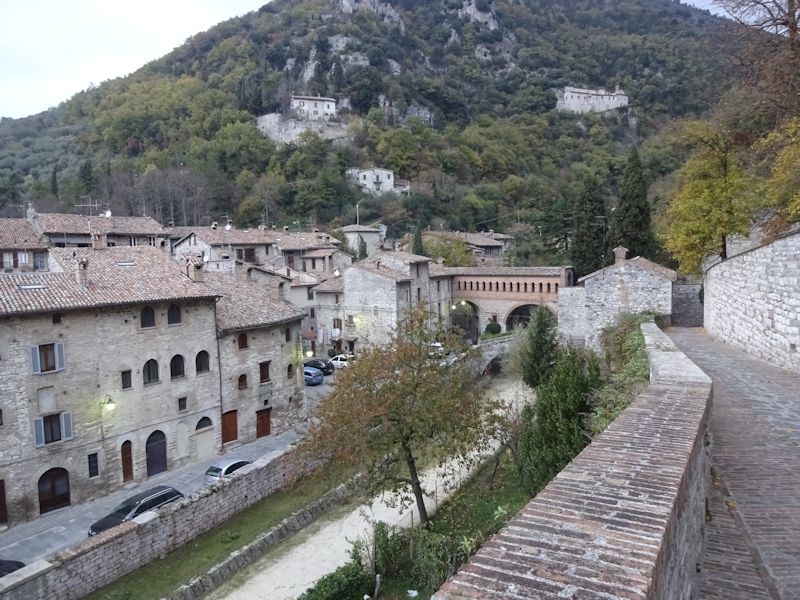
The Camignano riverbed
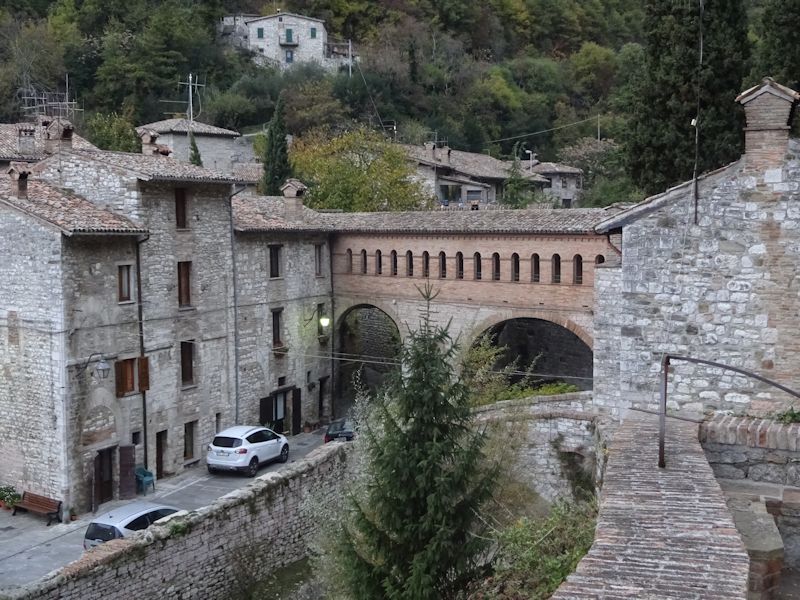
The Bridge over the River Camignano
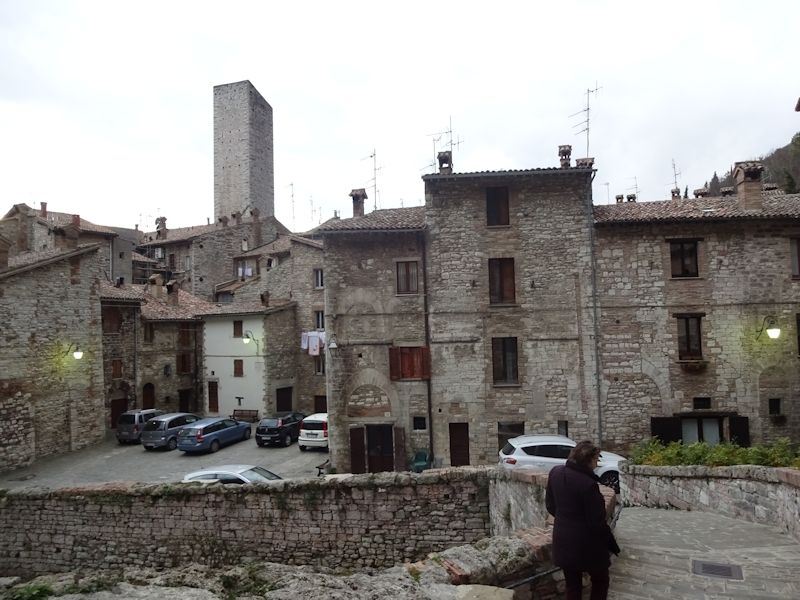
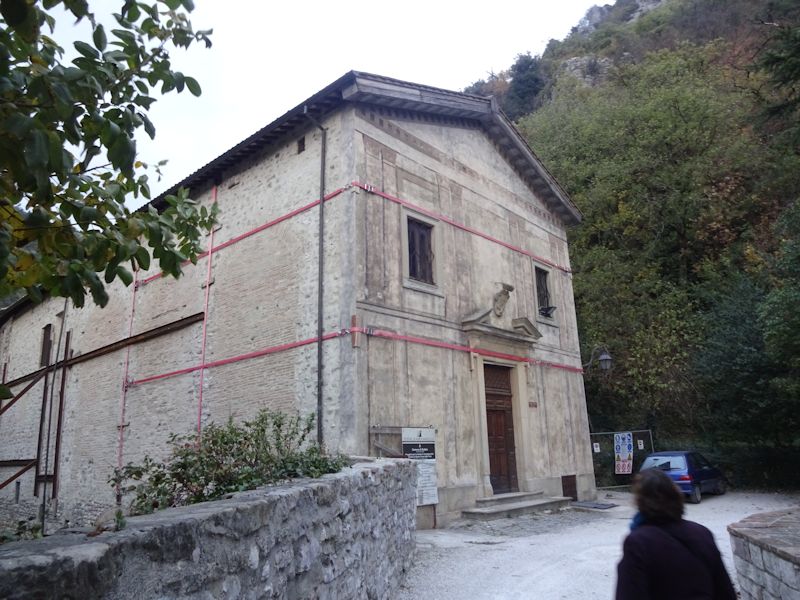
The 13th century Santa Croce church (not on the tourist's itinerary), held up by straps and a prayer
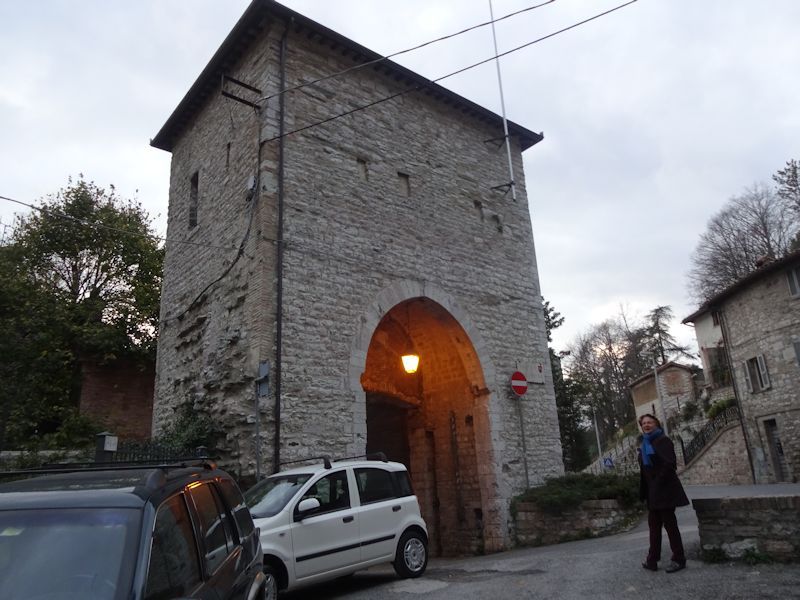
The Porta Santa Croce, from the outside
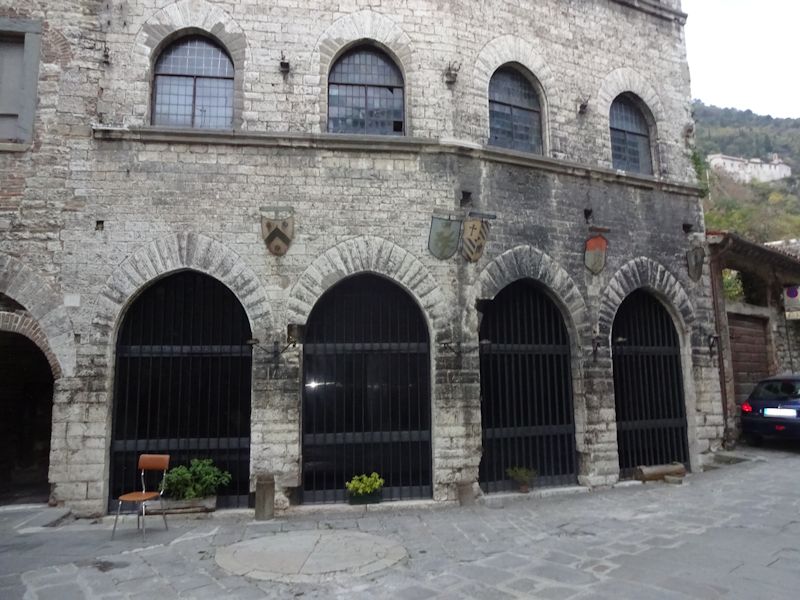
The Palazzo del Capitano del Popolo
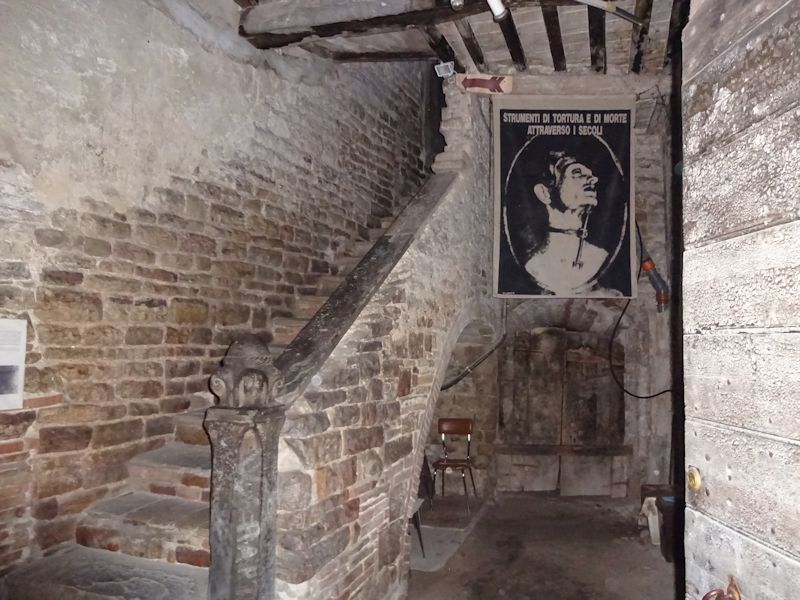
The whole neighborhood's been going downhill.
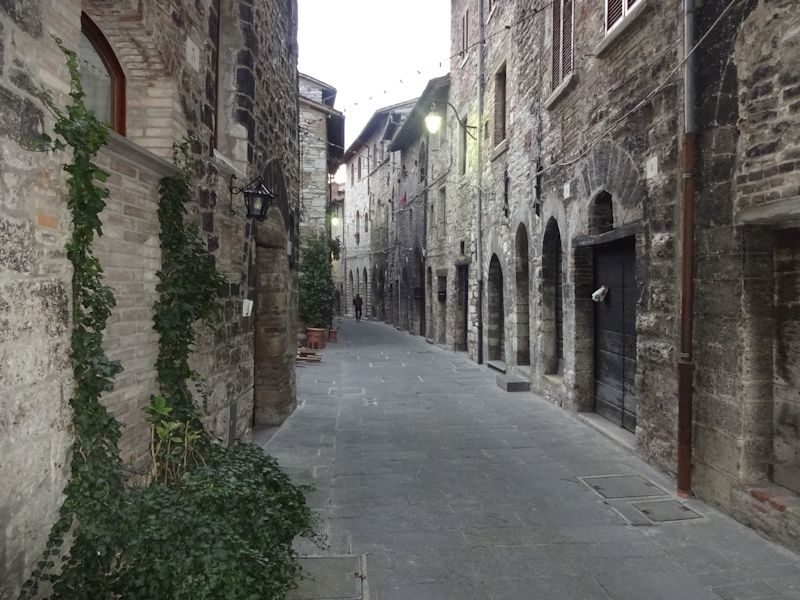
Along the Via Capitano del Popolo, just inside the northern city wall
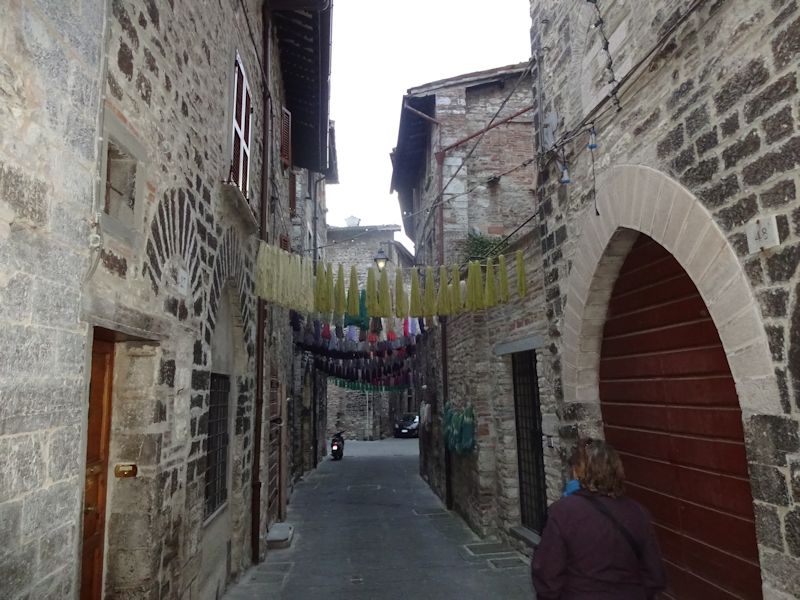
The Via Capitano del Popolo with things hanging overhead
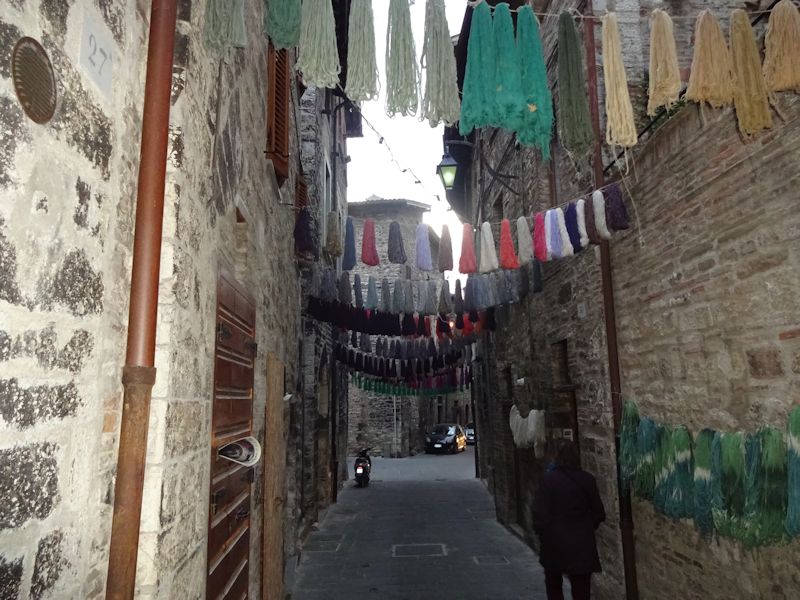
Dyed wool drying (a guess)
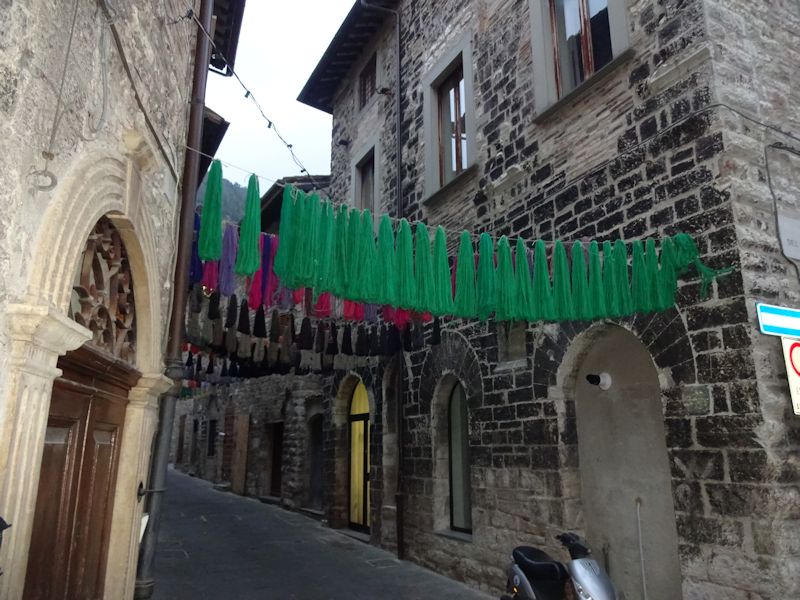
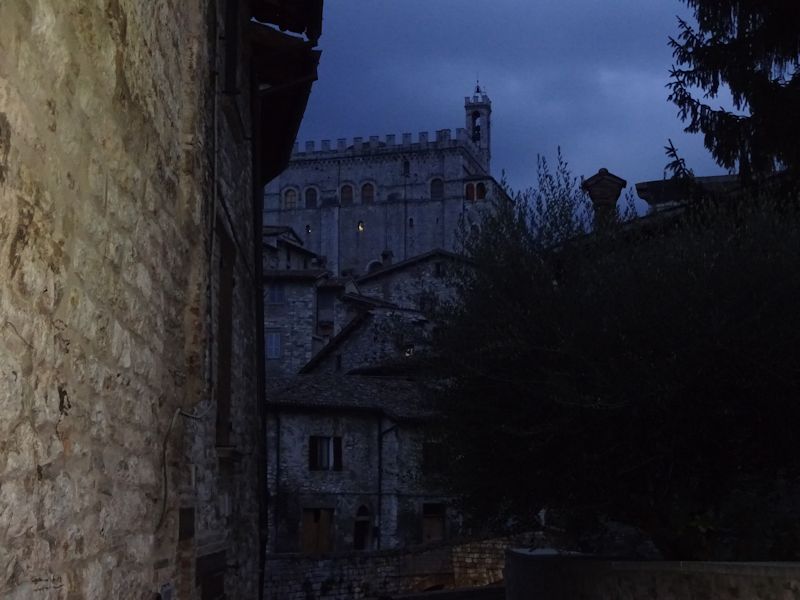
The Palazzo dei Consoli at nightfall
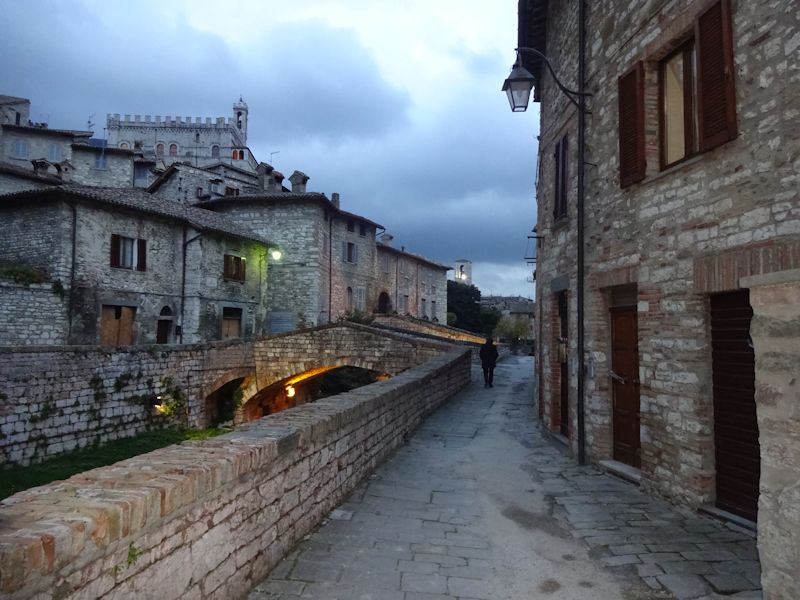
A stroll along the riverside
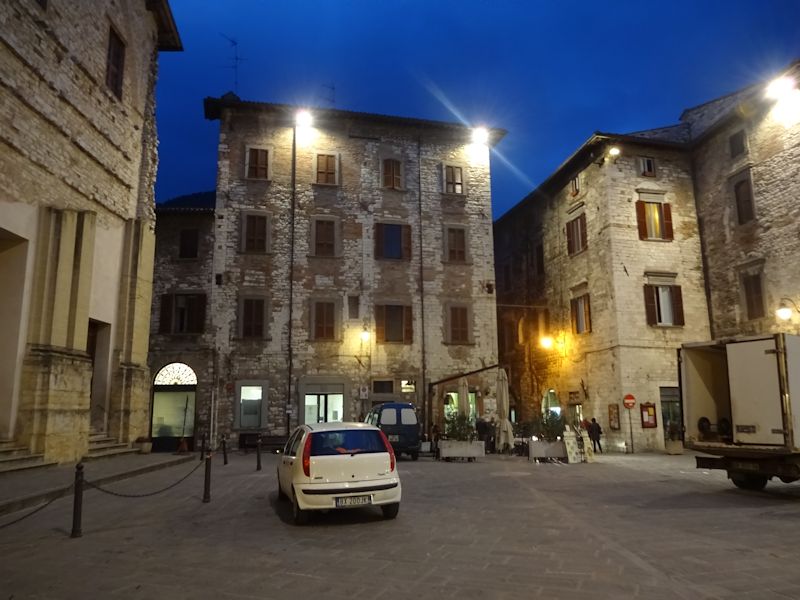
The Piazza Giordano Bruno
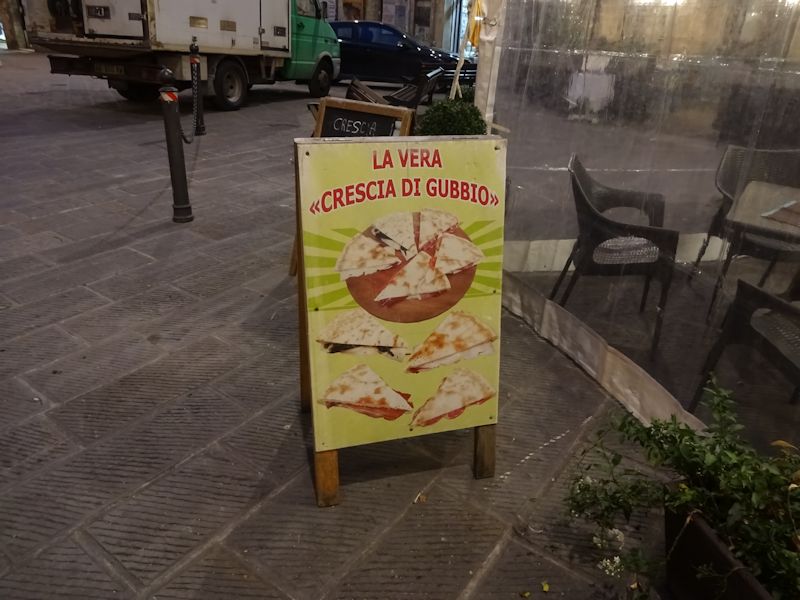
The authentic Crescia of Gubbio, yum
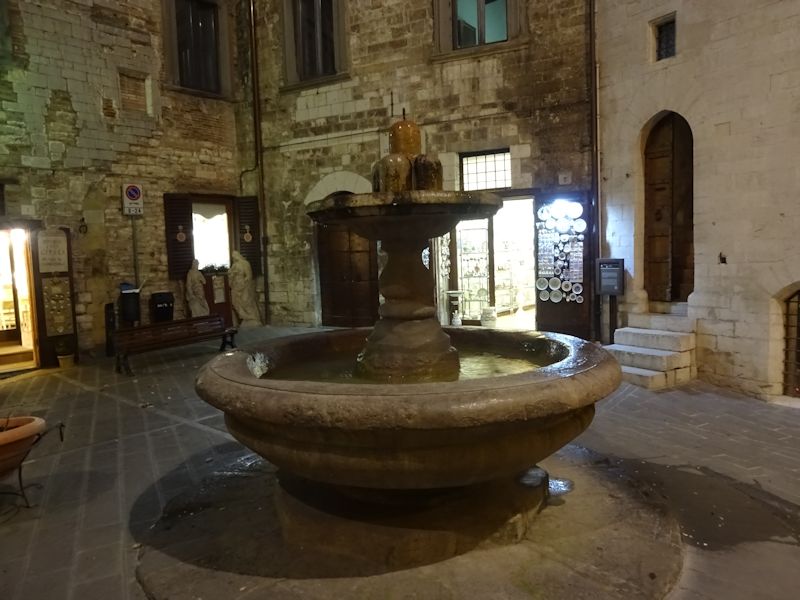
The Crazy Peoples' Fountain, outside the old prison, the Palazzo del Bargello
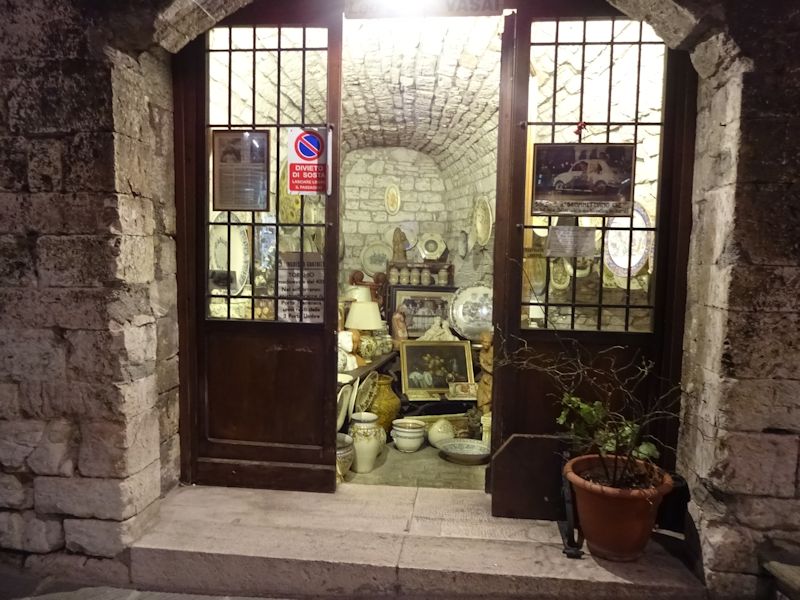
A cornucopia of odds and ends, bits and bobs
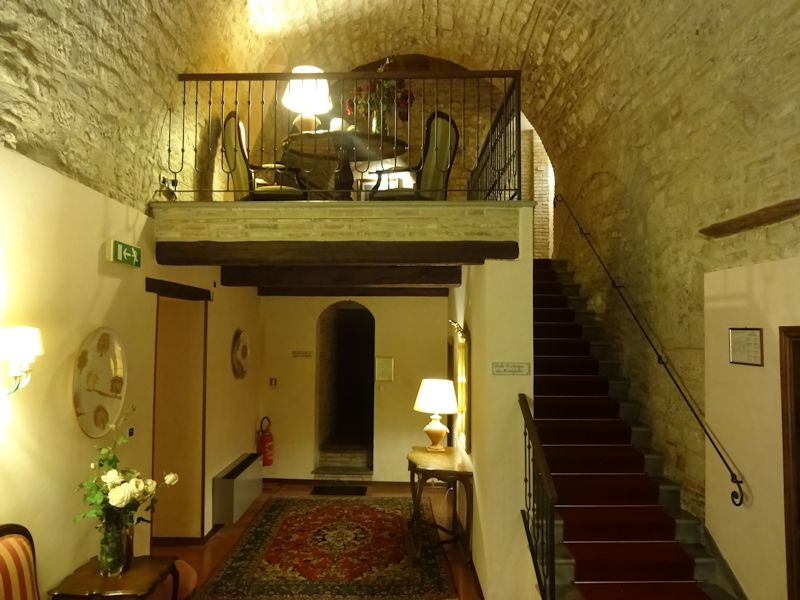
The last night in the hotel. And the secret tunnel into the Duke's basements.
Towards the Piemonte and home
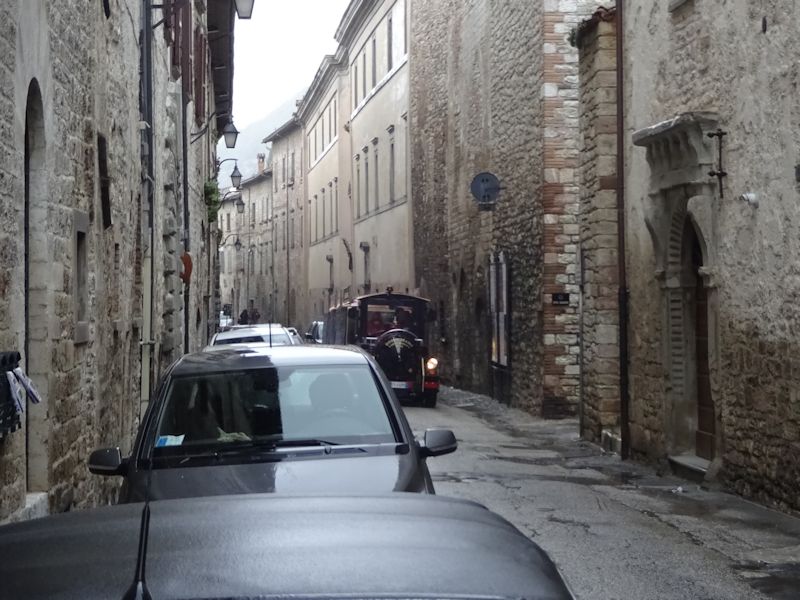
A rainy morning, 21 November, with the tourist train full of eager sightseers . . .
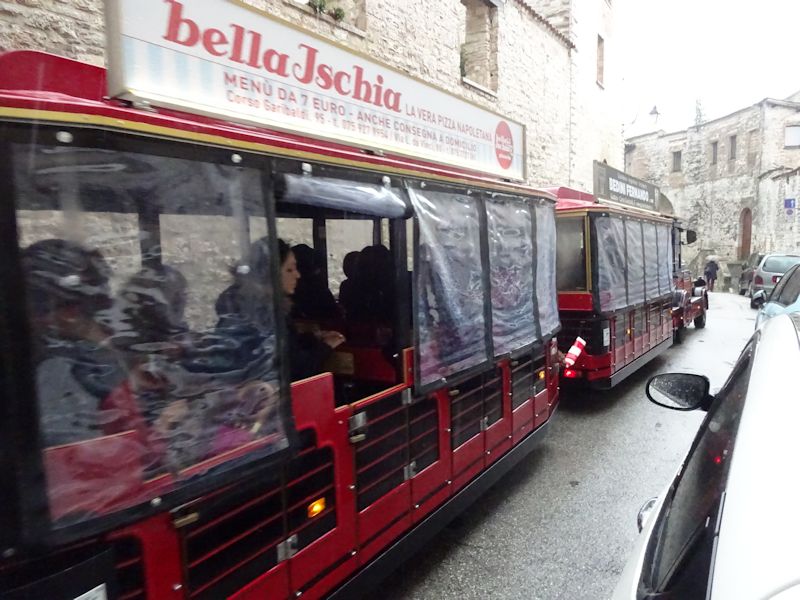
. . . mostly huddled out of the rain.
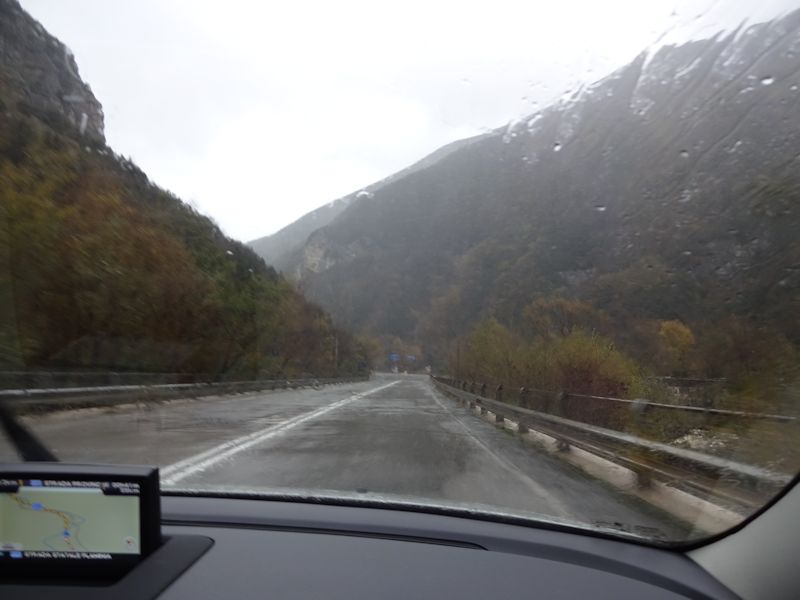
Grim weather in the mountains on the way to the autostrada at Fano, but eventually . . .
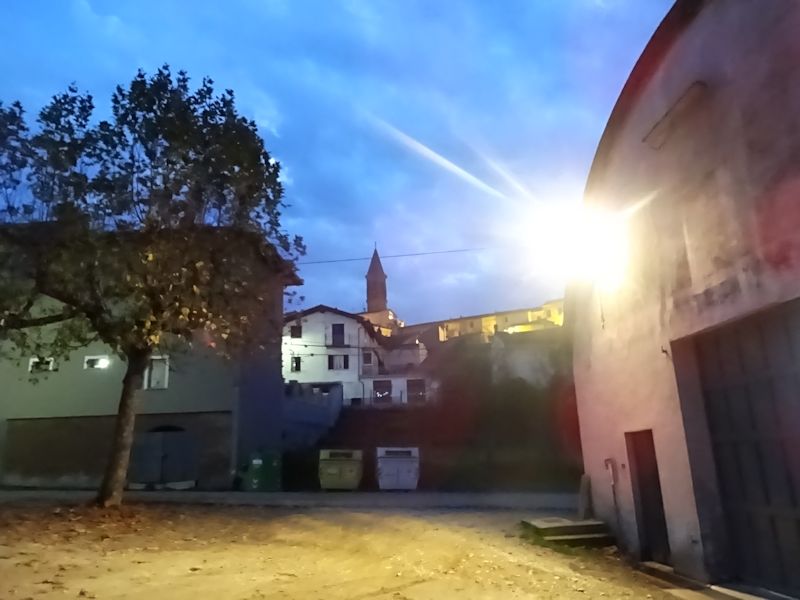
. . . we land in Lu in the Piemonte.

One of us is a great fan of the Grignolino of the region, and at the Cantina Sociale cooperative in Lu it costs about as much as the bargain-basement wines that the other of us prefers.

That's even figuring in the almost negligible Swiss custom duties above the first 12 bottles. So whenever we return from Italy, the car tilts dangerously towards the back.

Onward from Lu, over tiny mountainy lanes in the dark, we arrive at the Cascina Cerola B+B near Altavilla Monferrato, northeast of Asti.
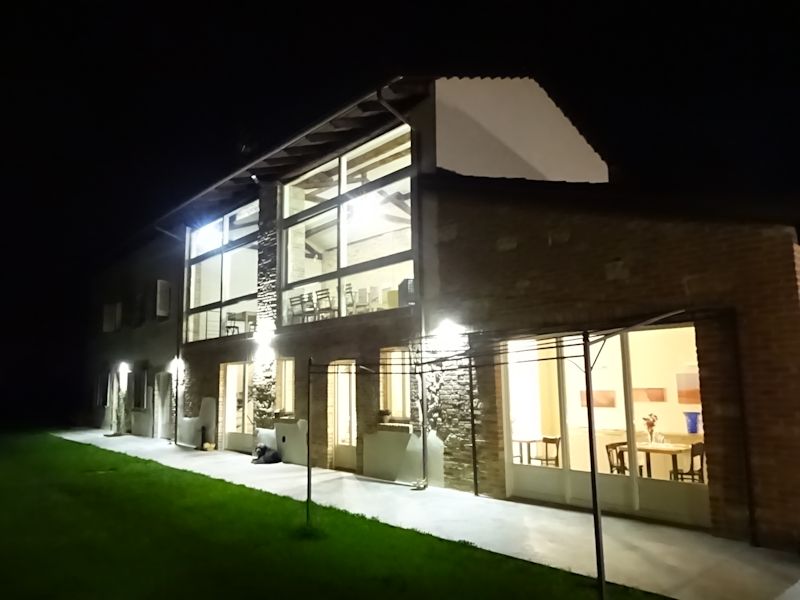
Newly renovated, with four rooms, a conference room, and a small restaurant, inexpensive and operated by two very nice young people
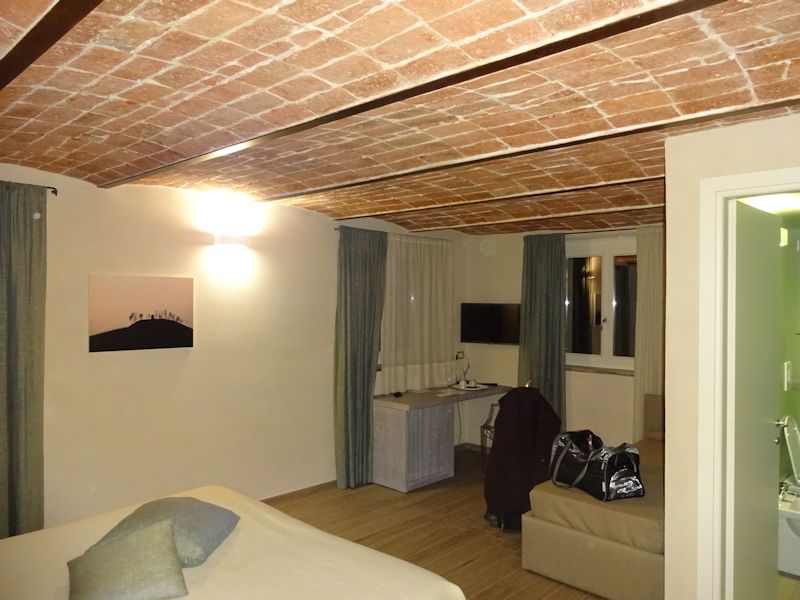
Our room in the Cascina Cerola, with views over the hills of the Piemonte
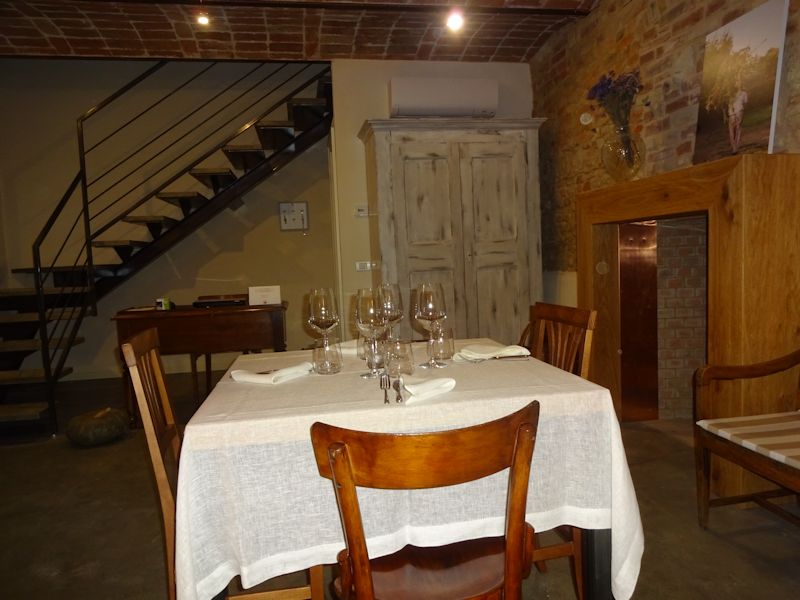
The restaurant has a short menu, but all good and all inexpensive.
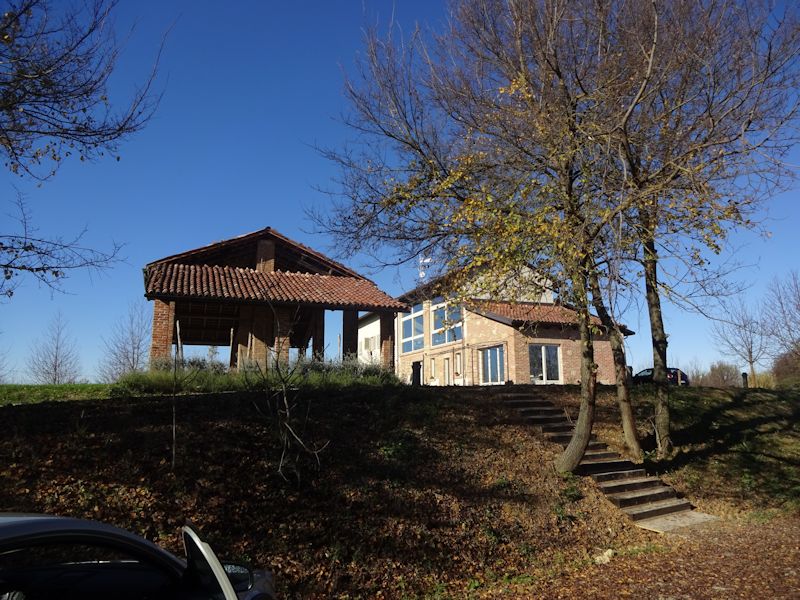
It's time to go home, 22 November, on a fine day on this side of the Alps.
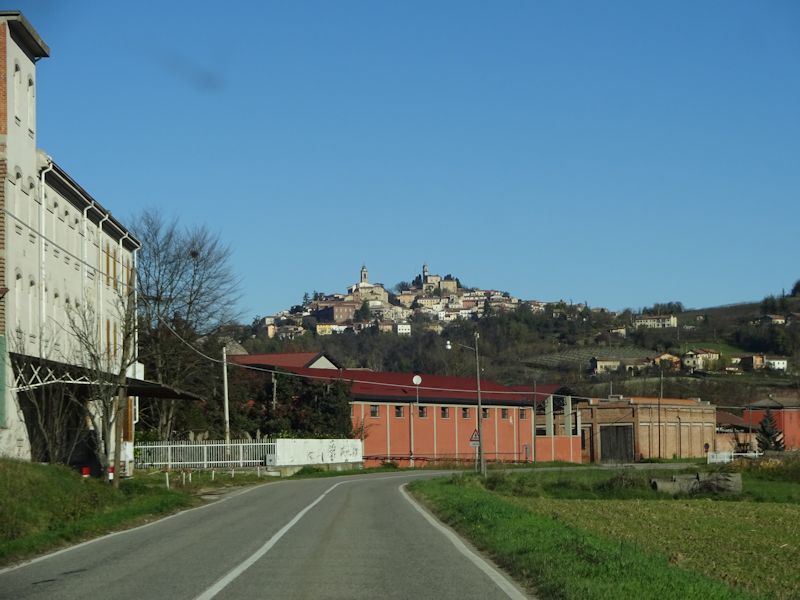
The countryside roundabout
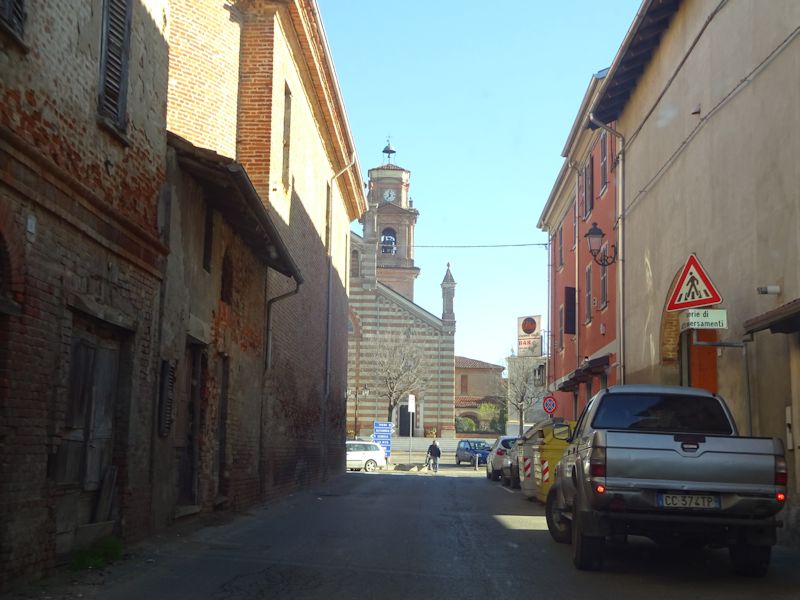
Passing through Quargnento on our way to join the autostrada near Alessandria
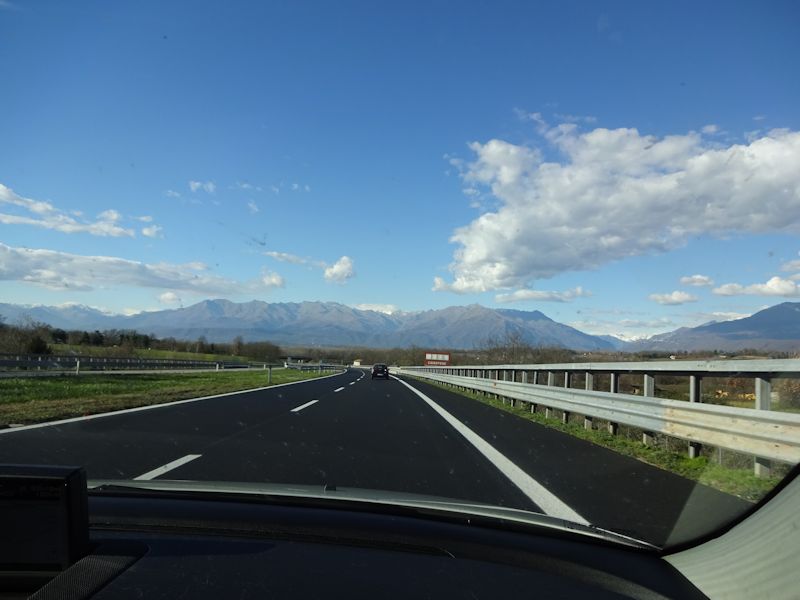
Soon to pass out of the flat Po Valley near Ivrea up into the Aosta Valley to the Alps

Up the Val d'Aosta about a third of the way, we're passing Fort Bard, a weird-looking fortress perched in a gap between the valley walls. We've been looking at this thing for years, but now we'll have to come back soon to investigate a bit more (three weeks later, in fact).

What with local medieval warlord families, the suzerains from the Savoie, the various Italian potentates from the Po Valley, and eventually the French and the Austrians, the Val d'Aosta is the Valley of Castles.
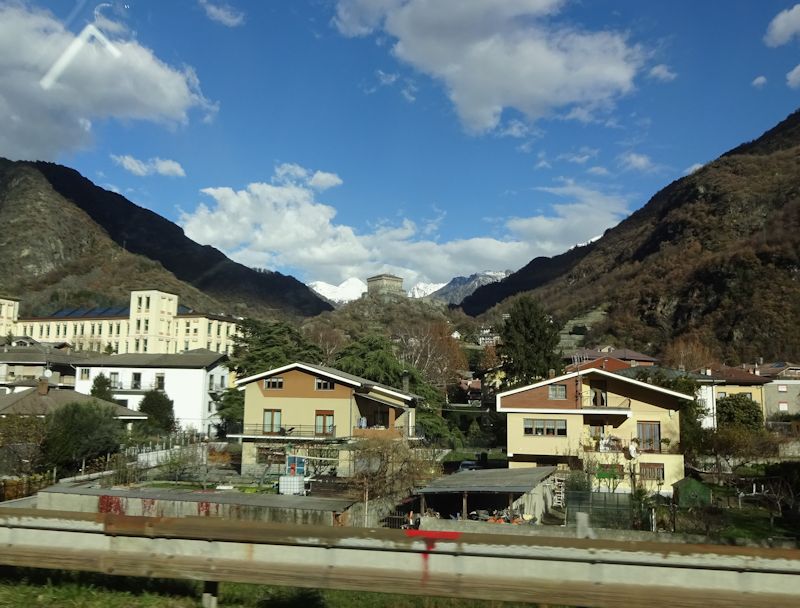
Little castles overlooking everything
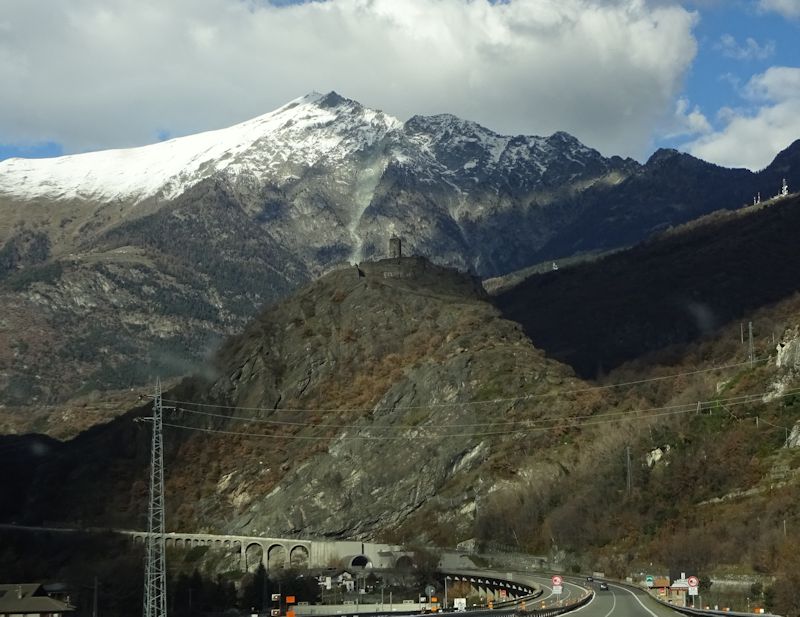
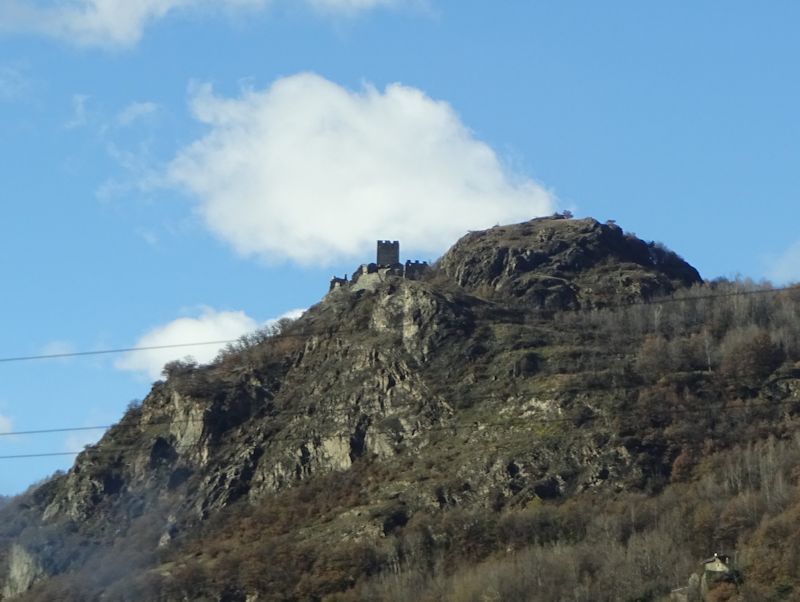
These are just the castles that got a reasonably intelligible camera shot out the window at 130 kph.

One of our favorites is the Castello di Fenis, closer to Aosta. We visited in 2003 but it's not easy to photograph it at 130 kph from the autostrada. |
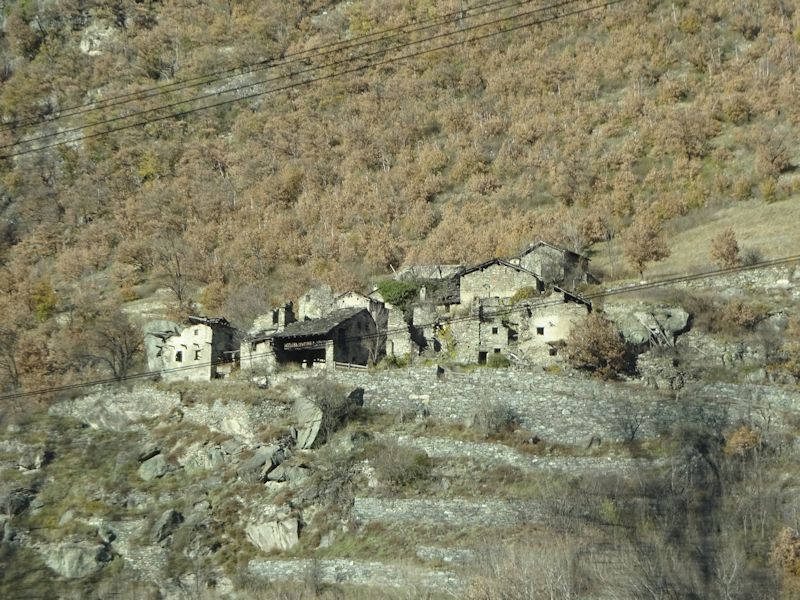
Not all the castles along the valley are in ruins, and not all of the ruins are castles.
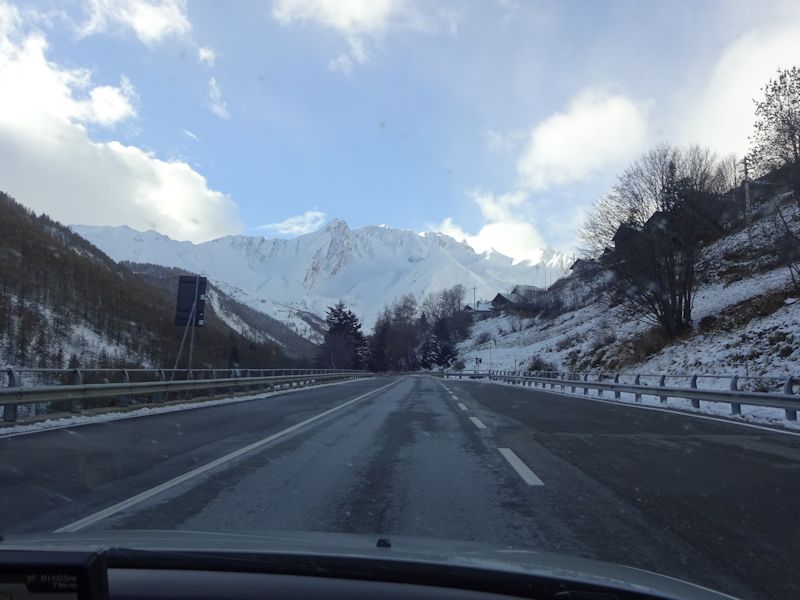
Above Aosta towards the Grand St Bernard Pass and tunnel
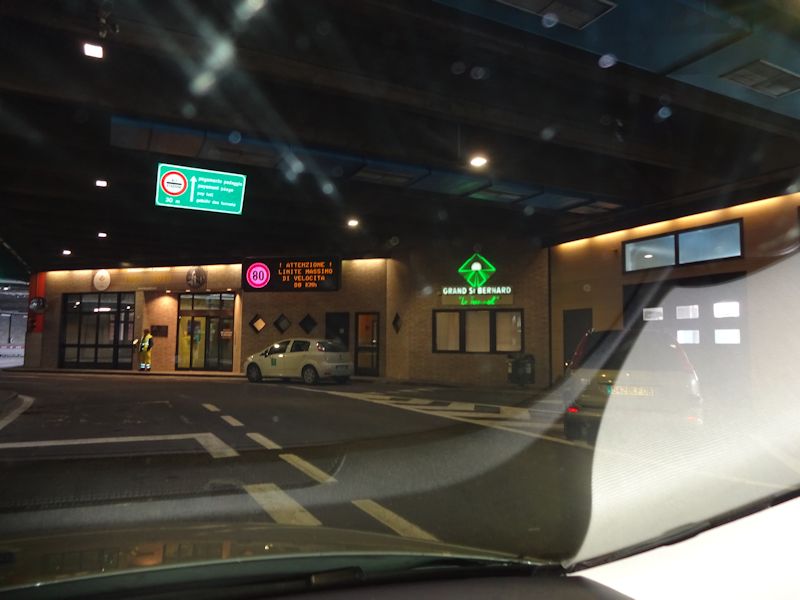
Settling up with the Swiss customs officials at the Tunnel of St Bernard
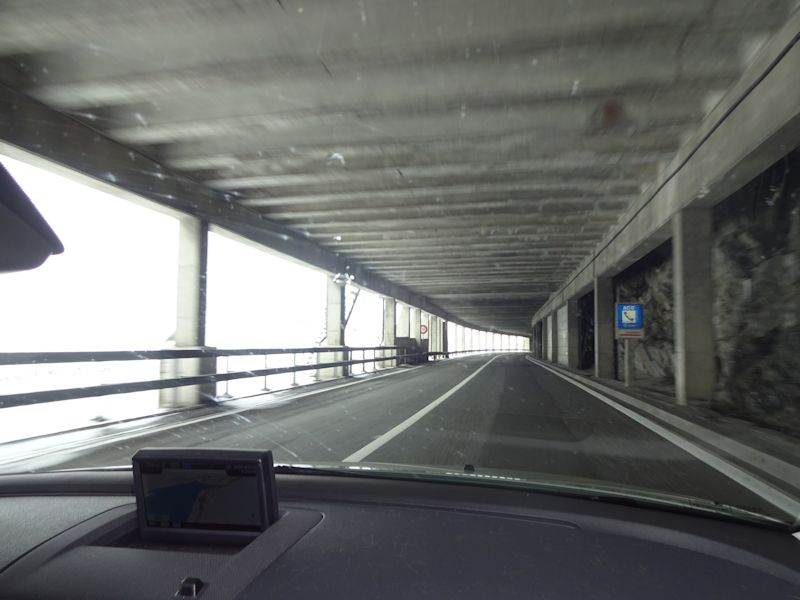
Very different weather on the Swiss side of the pass
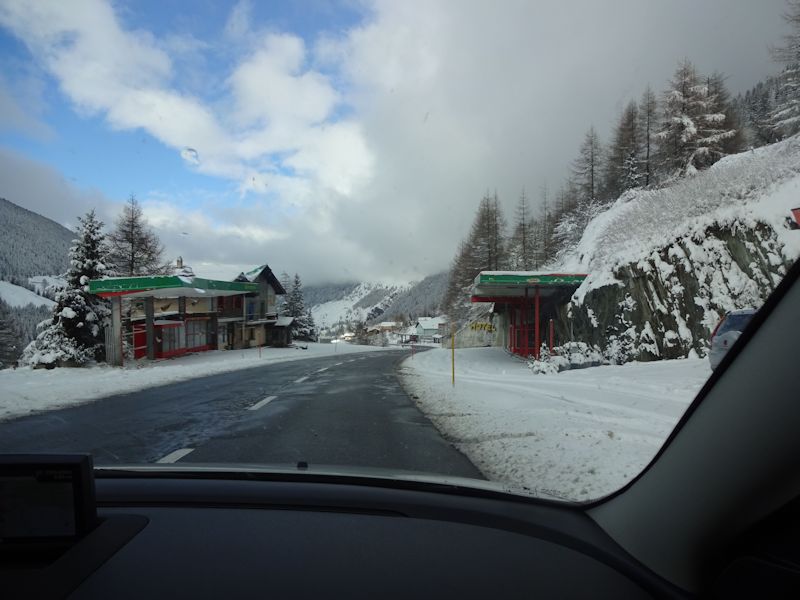
Coming down towards Bourg St Pierre, in better weather
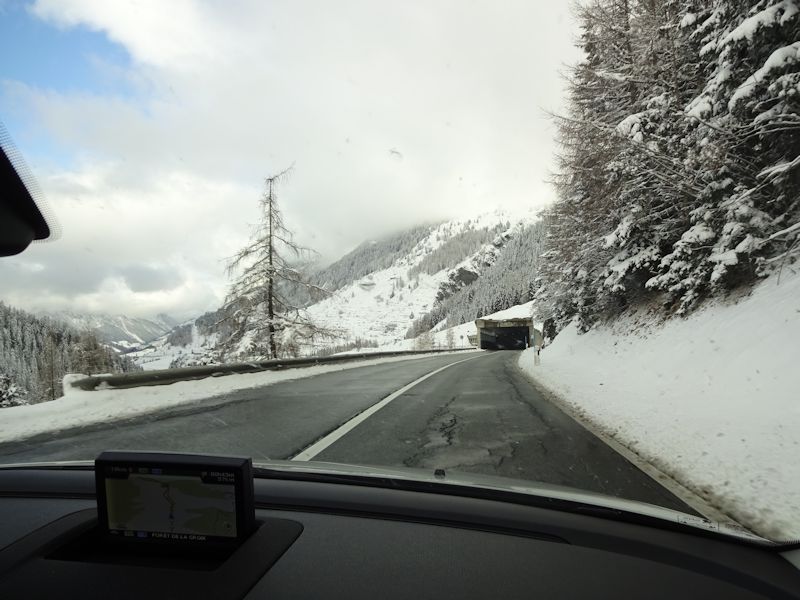
Home in half an hour from here
      
     

 Feedback
and suggestions are welcome if positive, resented if negative, Feedback
and suggestions are welcome if positive, resented if negative,  .
All rights reserved, all wrongs avenged. Posted 8 January 2016. .
All rights reserved, all wrongs avenged. Posted 8 January 2016.
|
 Dwight Peck's personal website
Dwight Peck's personal website
































































